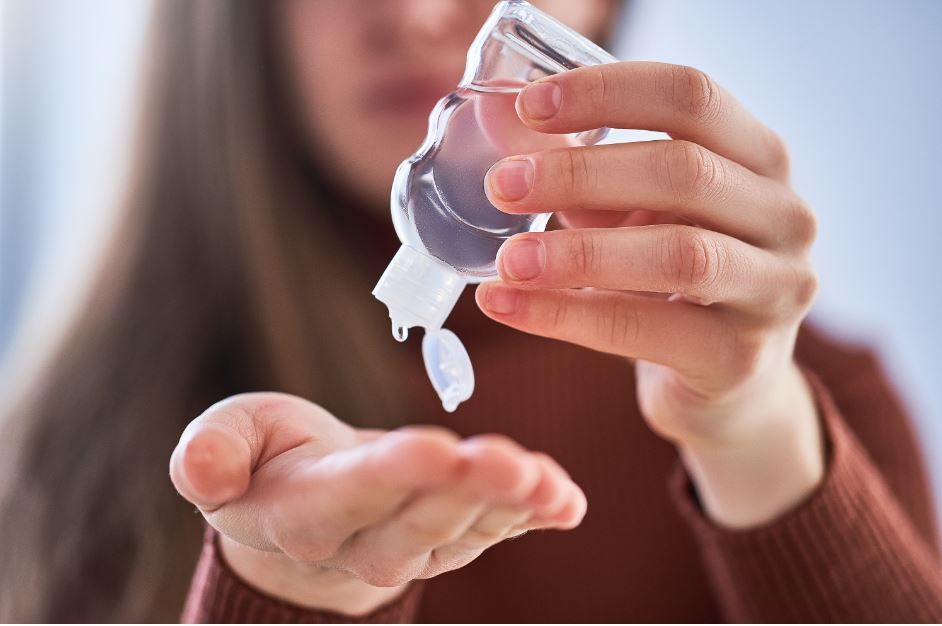- Clinical Technology
- Adult Immunization
- Hepatology
- Pediatric Immunization
- Screening
- Psychiatry
- Allergy
- Women's Health
- Cardiology
- Pediatrics
- Dermatology
- Endocrinology
- Pain Management
- Gastroenterology
- Infectious Disease
- Obesity Medicine
- Rheumatology
- Nephrology
- Neurology
- Pulmonology
New FDA Guidance on Hand Sanitizer Aims to Boost Supply
In repsonse to the COVID-19-related surge in demand for alcohol-based hand sanitizer, the FDA has issued guidance on temporary production and compounding.
<br/> As consumers take to making hand sanitizer at home, guidance from FDA will help broaden production. (©Goffkein/stock.adobe.com)

THe FDA has issued 2 guidance documents to communicate policy on the temporary manufacture of alcohol-based hand sanitizer products during the COVID-19 pandemic. Both are effective immediately.
In a press release announcing the documents, the Agency notes that the increased demand for the hand sanitizers in response to the global spread of SARS-CoV-19 has led to reports of consumers attempting to make these products for their own personal use and in their homes.
“We are aware of significant supply disruptions for alcohol-based hand sanitizers. Many manufacturers make hand sanitizers, and several have indicated that they are working to increase supply,” said FDA Commissioner Stephen M. Hahn, MD, in the FDA press release.
Meanwhile, entities that are not currently regulated by FDA as drug manufacturers have requested guidance on preparation and distribution of the products for use by the public and by helathcare personnel.
The first guidance,Temporary Policy for Preparation of Certain Alcohol-Based Hand Sanitizer Products During the Public Health Emergency (COVID-19), communicates the Agency's policy for the temporary preparation by firms that register as over-the-counter drug manufacturers. FDA states that, in light of the public health emergency, it will not take action against firms that gear up to produce the handrub as long as products are prepared using US Pharmacopoeia or Food Chemical Codex-grade ingredients detailed in the guidance, consistent with World Health Organization recommendations.
The second guidance, Policy for Temporary Compounding of Certain Alcohol-Based Hand Sanitizer Products During the Public Health Emergency, outlines the Agency policy for temporary compounding of hand sanitizers by pharmacists in state-licensed pharmacies or federal facilities and registered outsourcing facilities. Compounding, typically carried out by a licensed pharmacist or physician, or, in the case of an outsourcing facility, a person under the supervision of a licensed pharmacist, combines, mixes, or alters ingredients of a drug to create a tailor-made medication. Under the policy compounders do not require a patient-specific prescription. The same stipulations for use of ingredients applies in this guidance as in the first.
Also specified in the documents are product labeling, manufacturing methods and reporting requirements, this last to ensure that the manufacturers can receive and submit adverse event reports to FDA for any products.
The agency realizes that manufacturers and compounders will need time to ramp up production as they obtain the ingredients needed to make these hand sanitizers. FDA Commissioner Hahn underscores FDA flexibility in helping meet the increased demand and concludes in the release: "We will continue to work with manufacturers, compounders, state boards of pharmacy and the public to increase the supply of alcohol-based hand sanitizer available to Americans."
For more COVID-19 coverage for primary care, visit our COVID-19 Resource Page.
Stay in touch with Patient Care® Online:
→ Subscribe to our Newsletter → Like us on Facebook → Follow us on Twitter → Follow us on LinkedIn→ Write or Blog for Patient Care® Online
